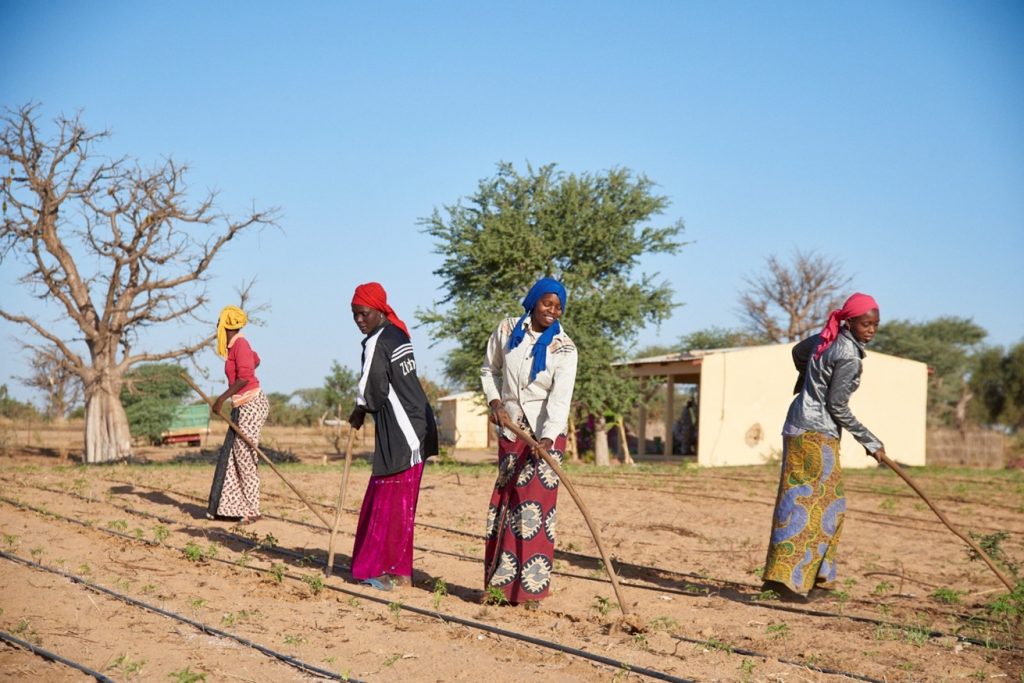By Catherine Gatundu, head of climate justice and resilient livelihoods at ActionAid International
A terrifying trifecta of Covid-19, climate change and conflict is driving rising hunger, poverty, inequality and violence against women globally.
Two billion people do not have enough to eat, with women and girls hardest hit due to increasing violence, unpaid care work and discrimination. Meanwhile, the way that we currently produce food is deepening the climate emergency, with agriculture responsible for almost 40% of greenhouse gas emissions, according to recent estimates.
Clearly, global food systems need a major overhaul. The UN Food Systems Summit is being billed as the answer – a forum to launch ‘bold new actions to transform the way the world produces and consumes food’. But we’re increasingly concerned that the views of those most affected by hunger and malnutrition are being side-lined in favor of corporate interests.
Sustainable approaches to farming can ensure the right to food for all, mitigate climate change and promote employment and social stability. By contrast, industrial agriculture, focused on increasing productivity above all else, not only overheats the planet, but is also responsible for soaring biodiversity loss, and frequently brings human rights abuses in its wake.
On the frontlines of the hunger crisis in the global south, communities know why they are struggling to feed their families and why their crops are failing. They’ve been pushed to the bottom of global supply chains that put the interests and profits of huge, multinational agribusinesses and industrial farming above people and the planet. Patriarchy and discrimination against women are built into the system, which exploits the unpaid labour of women with no compensation or recognition.
ActionAid supports communities living near palm oil plantations in Guatemala, which is the sixth top producer of the edible oil worldwide. The EU imported 438,000 tonnes of palm oil from Guatemala in 2019, half of its total output. This most widely used vegetable oil in the world is an ingredient in around half of the packaged products found in supermarkets, including pizza, peanut butter, biscuits, cooking spray, shampoo, deodorant and cosmetics.
But while multinational companies and consumers benefit from importing cheap palm oil from Guatemala, this comes at the expense of workers, indigenous communities and particularly women, whose lives and livelihoods are under constant threat. In communities where we work, we see palm oil production resulting in severe human rights abuses, including land grabs, violence and retaliation against environmental rights defenders, and attacks on indigenous people and women’s rights.
Aided by insecure land tenure rights of indigenous people, land grabbing for palm oil plantations has alarming consequences for the food security of communities who once owned the land. Palm plantations have taken over vast areas of land, meaning there is not enough left for subsistence farming. This has meant that Guatemalan communities can no longer produce their own food.
Recent research by ActionAid Netherlands found that seven palm oil mills in Guatemala, connected to documented evidence of human rights and environmental abuses, link through global supply chains to at least five Dutch-registered global corporations, including the big ag conglomerate Cargill, and consumer giants Unilever and Nestle.
Now there is a risk that companies like Cargill, Unilever and Nestle, which are partners of the World Economic Forum (WEF) – a controversial partner of the UN Food Systems Summit – will unduly influence decisions about the best way to tackle food insecurity. When they’re part of the current problem of rising hunger and global heating, how can they be best placed to put forward solutions to create sustainable and equitable food systems?
ActionAid is among 185 civil society organizations and movements that have signed an open letter to the UN Committee on World Food Security (CFS) to say we cannot be involved in the summit unless there is a radical redirection of the current course. We’re calling for a move away from the interests of corporations to prioritize human rights and the knowledge and experiences of those most affected by food insecurity and malnutrition, particularly women and indigenous communities.
Small family farms produce as much as 80% of the food consumed in Africa and Asia. Women farmers and our local partners, who are living and working in areas hit by rising food insecurity and the climate crisis, know the challenges and they know the solutions.
An ActionAid survey of women farmers and local leaders in 14 countries across Africa and Asia last September, found 83% reported a loss of livelihood when Covid-19 hit, with 65% saying they were experiencing food shortages. 58% of women said they were skipping meals, so their families had enough to eat during lockdown.
We know from our local partners that the smallholder farmers we’ve supported with training in agroecological farming practices that build climate resilience and improve the productivity and fertility of soils are doing better at adapting to the climate crisis and weathering the Covid-19 health and economic crisis. This includes ensuring farmers can use their own seed varieties, in the face of increasing pressure to use commercial hybrid varieties. We know that family farmers can thrive when women and communities have access to and control over their land and other natural resources.
Their voices must be heard at the Food Systems Summit, otherwise it has no legitimacy to decide how to transform the way we produce and consume food globally.

